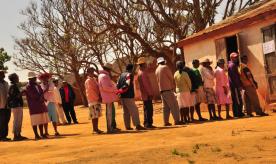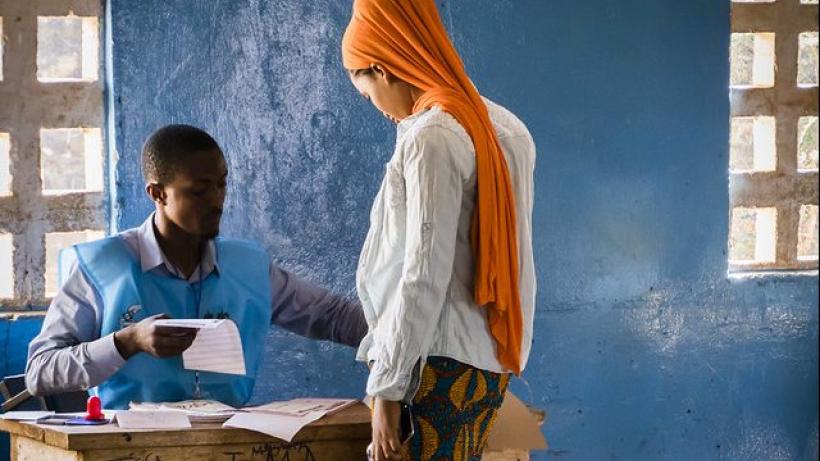The impact of information on voter knowledge and engagement: Evidence from the 2012 elections in Sierra Leone
Evidence from India and Brazil suggests that increased information about politician performance can result in lower vote shares for low-performing or corrupt representatives. Using the 2012 elections in Sierra Leone, this project looks at the impact of public screenings of debates between electoral candidates on voting outcome.
In the run-up to the November 2012 elections in Sierra Leone, implementing partner Search for Common Ground filmed debates between rival candidates for membership in parliament. From a total of 264 polling centres, 112 were randomly assigned to receive community screenings of these debates, 40 received interventions that provided information to individual voters, and another 112 served as a comparison group.
Preliminary results suggest that voters acquired significant political knowledge from watching the debates, knowledge that persisted over a number of weeks, and importantly, influenced their voting choices on Election Day. The researchers find strong positive impacts of debates on voter knowledge- of politics in general, and of specific candidate characteristics and policy stances; a better match between voter policy preferences and those of their selected candidate; greater voter openness to candidates from all parties; and increased vote shares for the candidates who performed the best in the debates. Candidates also responded to the road show by increasing their campaign effort, e.g. by giving more gifts and making more visits, in villages where screenings were held. By equipping voters with knowledge and influencing their voting choices, the debates thus further attracted greater campaign investment by candidates.
Results also demonstrated that participation in debates led to higher levels of constituency engagement and development expenditure among elected public officials.
Project outputs

Radion Democracy: Gud Mornin Salone

Sierra Leone News: Report reveals… Debate changes voting in Salone

Sierra Leone: 'needs a Marshall Plan, not a multitude of micro initiatives' (The Guardian)

Smart African Politics: Candidates Debating Under a Tree








